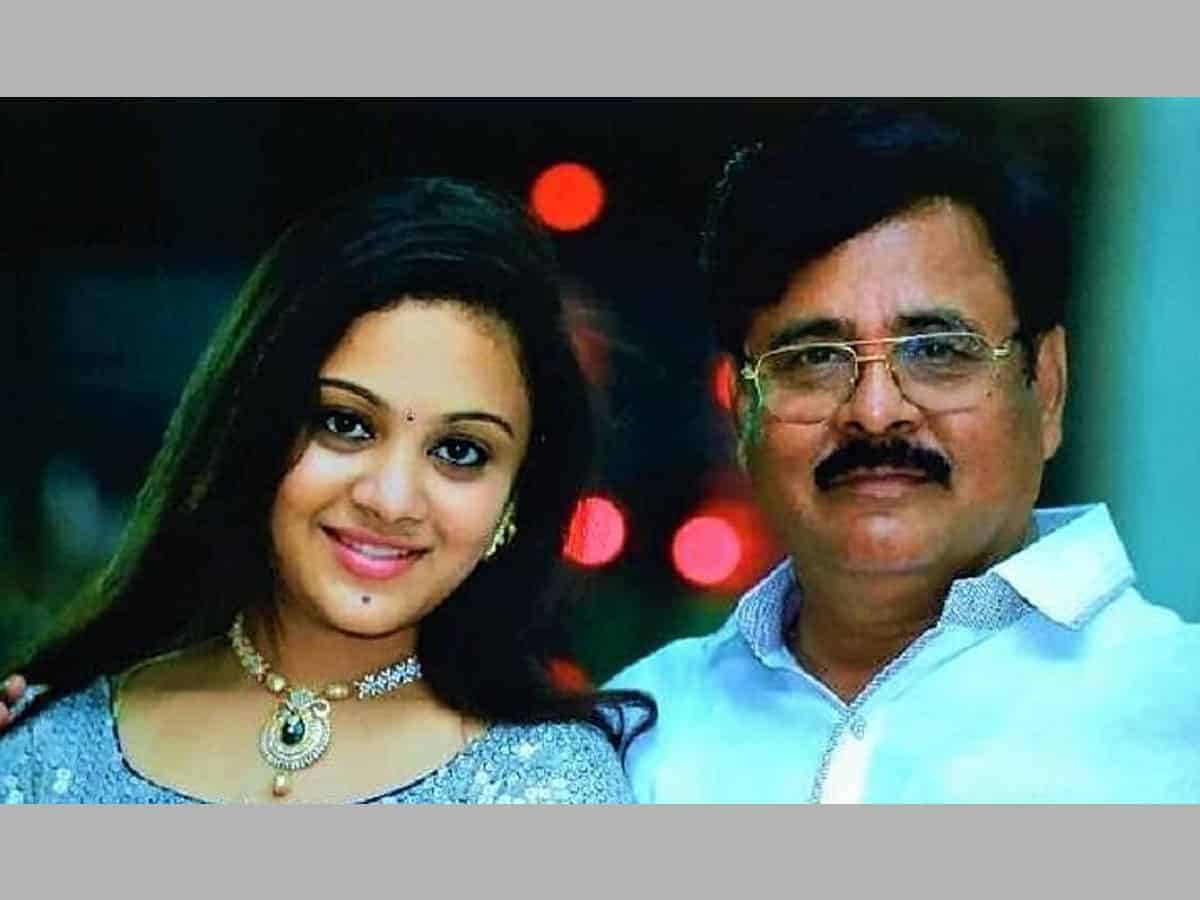Gali Nagaraja
Hyderabad: The mortal remains of Maruti Rao, prime accused in a case of honour killing involving his Dalit son-in-law Pranay, was consigned to flames on Tuesday.
His suicide, however, has sparked an outrage, revolving around parental love for children juxtaposing with teenage love and caste factor in between.
When the news of Maruti Rao’s suicide in the guest house run by Arya Samaj in Hyderabad on Sunday broke out, the media went into overdrive, giving an excessive coverage, even eclipsing the presentation of the Telangana state Budget for 2020-21 coincidentally on the same day.
Rao’s death brought to the fore the caste divide with social media becoming a platform for a renewed war. It is almost the same scene that had been created at the time of the killing of his son-in-law with his alleged involvement in 2018. Social media platforms continued to be flooded with unending posts with netizens divided into warring groups, supporting or assailing Amrutha, the widow of Pranay, and her father. Sections owing allegiance to Dalits defended Amrutha. The rival groups expressed grief over Maruti Rao’s self-killing, demonising Amrutha.
Amrutha, 18, of Telangana’s Miryalaguda town fell in love with Pranay, a Dalit, and married him against the wishes of her parents belonging to Vysya (business) community. The community is considered to be conservative with no tolerance for inter-caste marriages. Offended by his daughter’s action, Maruti Rao allegedly got the Dalit groom hacked to death by hiring a gang of killers for Rs 1 crore. The cold-blooded murder right in the presence of Amrutha and his wife soon received a caste colour when the Dalit outfits from the two Telugu states dubbed it as an honour killing. There is an unwritten taboo on marriages between the couples from upper-castes and Dalits. The family of Maruti Rao was obviously stigmatised by his fellow caste men after his daughter married a Dalit. When the murder case against him was scheduled to come up for a final hearing in a local court in the next few days, the accused was found dead in his room. He purportedly left behind a suicide note, expressing his last wish, asking his daughter to go back to her mother.
When Amrutha went to the funeral site in police protection to take a glimpse of the dead body of her father, she was disallowed by his angry mother and uncle Shravan. They alleged that she alone was responsible for Maruti Rao’s death. This was followed by some interesting posts on the social media. “Maruti Rao killed somebody and, at last, killed himself just for the sake of his love for his daughter”, reads one post, drawing flak from the groups supporting Amrutha.
A Chaitanya Mahila Sangham activist had her timeline splashed with posts, saying supporting Amrutha means becoming a partner in building a new society free of caste prejudice and social inequalities. Inter-caste marriages are inevitable for elimination of caste divide, says her another post.
Priya Chowdary, a social activist, in a TV debate, squarely blamed Amrutha’s rebellious and wayward behaviour with an utter disregard for her parents for the tragedies in both the families. Amrutha calling her father by name exposes her failure to give minimum respect to her parents. “Love marriage is not bad, more so the one with someone from Dalits. But Amrutha should have been more patient to take her parents on board, understanding sensitivities in her community,” Indla Ramasubba Reddy, says a leading psychiatrist. Too much attachment Maruthi Rao had with his daughter is also to blame, he added.
Dalits made a rapid progress in literacy and began to reach higher echelons right from the British rule with the help of educational institutes run by Christian missionaries. This prompted them to assert themselves leading to bloody caste conflicts in Karamchedu, Neerukonda, Tsundur and Vedurukuppam in Andhra Pradesh in 1980s and 1990s.

